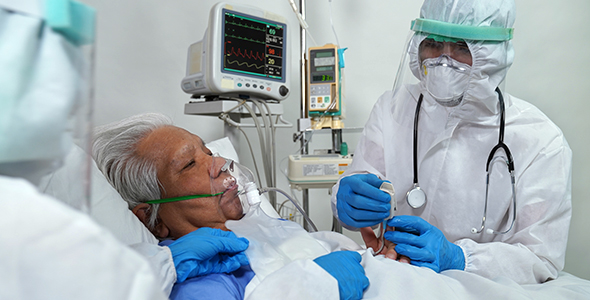Administering antimicrobial therapy is essential for treating the underlying infections that cause sepsis, but the protocols for doing so can, at times, clash with antimicrobial stewardship guidelines.
Can Severe Cases of COVID-19 Be Considered Sepsis?
COVID-19 is not just any respiratory virus. Researchers have quickly discovered that it is capable of directly affecting multiple organ systems, and that it can also cause a host of related complications. Among those complications are endothelial dysfunction, sepsis, and acute kidney injury.
Striking a Balance: The Struggle to Save Lives While Mitigating Antimicrobial Resistance in Sepsis Patients
Antibiotic resistant infections and multi-drug resistant infections have been on the rise in recent years. When it comes to sepsis, these infections have the potential to be much more dangerous because they can be difficult to treat.
Professional Sports and Infection Control: Implications & Lessons Learned
The NBA, NFL, NHL, and MLB have undertaken infection control techniques to get athletes back in action while minimizing the spread of COVID-19
The Value of Diagnostics in Combatting Antimicrobial Resistance – A Public Health Problem
At this year’s World Anti-Microbial Resistance Congress, Dr. Tristan Timbrook delivered a...
Lindsay Denny Discusses the Critical Role of WASH in Preventing Infectious Diseases and Fighting Antimicrobial Resistance
WASH, which stands for water, sanitation, and hygiene, are basic...






